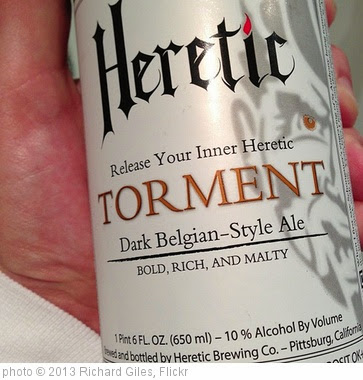You submitted hundreds of fantastic questions for the latest installment of our “Ask…” series— Ask a Pastor’s Wife and a Pastor’s Husband. It was also really cool to hear from those of you who are married to pastors who had insights and stories to share in the comment section. So I’d like to extend a special invitation to pastor spouses/partners to join Jim and Jodie by responding to one more of these questions yourselves, from your experience.
Our guests: Jodie Howerton is a freelance writer and communications consultant who has been married to her pastor husband, Mike, for 18 years. She has 3 children and is the founder of the Redefine Positive Project, an initiative that is working to reform HIV/AIDS education in public schools across the nation. Jim Kast-Keat is married to Jes, the Associate Minister at West End Collegiate Church in New York City. Along with being a pastor's husband, Jim is also a pastor, serving as the Associate Minister for Education at Middle Collegiate Church in the East Village. He is the creator and curator of ThirtySecondsOrLess.net.
From Katie: Do you feel any kind of pressure to always be putting on the "best face" for any situation? I know that the preacher's wife in my church growing up was very constrained; she didn't feel free to express any negative opinions at all, even just to talk about her kids being a handful, because the pastor's family is supposed to be the "example". I assume the preacher felt similarly, though I never talked to him about it. I wondered if you two feel that pressure to always be the best marriage in your church, the happiest, the glowiest, the everything-is-wonderful-even-when-it's-not “example.” If you do, how do you deal with the added stress? If not, was it something you did deal with and have sort of gone through and come out the other side?
Jodie:
![]()
Katie, to a certain extent, I think that all families in ministry do feel pressured to pretend sometimes. When I attend church or drop my children off in their Sunday school classes, I definitely have a sense that we are being watched. Actually, we are frequently watched at grocery stores, restaurants, airports – even on vacation. It’s not that people are being rude; it’s just that there is a natural fascination with leaders and their families. I’m not sure that pastors and their families will ever be completely out of the spotlight. With leadership, comes exposure, for better and for worse.
However, what I’ve learned over the years is that you cannot allow other people’s expectations to dictate how you live, love, and serve. A wide variety of spoken and unspoken expectations will always be there for pastors and their families. The problem with these expectations is that they are absolutely impossible to meet. Expectations can often be suffocating, all consuming, and guilt producing. If we try to meet them all, we will burn out. When families in ministry pretend to have perfect lives, they become lonely, isolated, and flat out miserable.
The truth is that my kids are a handful sometimes, that my husband and I fight sometimes, and that everything is not always wonderful. Our family experiences the same struggles that “normal” families do. We have been honest about that – from the pulpit and in private conversations with those in our church. In many ways, we have refused to step up onto the proverbial pedestal that those in ministry are often placed on. I’m not saying I tell everyone I meet at church about the private struggles we are facing, but I do feel free to let people know that I do not have all the answers and that the “example” we are trying to set is one of authenticity.
There is absolutely no way I can live up to the expectations imposed on me by other people. Instead of asking, “is the congregation happy with my performance as a pastor’s wife?”, I ask myself, “Am I living how God is calling me to live? What are my own passions in ministry? Do I need a break?”
Dealing with impossible expectations is stressful, even when I’m asking myself the right questions and setting firm boundaries. So, self-care is really important in my life. It sounds cliché, but regular exercise, an occasional therapy appointment, and date nights with my husband help keep my stress level and anxiety manageable. When those things are absent, I’m not very fun to be around. :-)
Jim:
Short answer: Yes. And it sucks.
Long(er) answer: Yes. And it really sucks.
![]()
Actual answer: Much of this "best face syndrome" is a result of a projected identity. When I find myself putting on this "best face" as a pastor's husband I am often living in to the identity that is being projected on me. A pastor can't have any doubts, and therefore their partner must be perfect too, not to mention their conflict and blemish free relationship. This is why going to church as a pastor's husband is never just "going to church." People will inevitably read into the dark circles under my eyes, my tone of voice, and my posture, assuming it all says something about what's happening behind the scenes. They don't want to see me (let alone my partner) as human; we must be all things super human, a glimpse and hope for the Übermensch.
So yes, this pressure exists. It can't not exist. But what do we do about it? Jes is excellent about articulating what it means to be human. It does not mean we are perfect and pristine but messy and real. We both try and be authentic people when we are in her congregation, recognizing the necessary role/function boundaries that must exist (sermons should be authentic but they aren't the pastor's therapy session). I can't control how someone perceives me but I can control my posture. I can choose an authentic posture rather than feeling like I must become the perceived and projected identity and "best face" imposed upon me. And we give ourselves space to take off this projected "best face" when we are with close friends or alone together. We recognize that the "best face" imposed on us will never be who we are, but simply who others want us to be.
From Rachel: Jodie, I spoke with a youth pastor once who said there were girls in his youth group who, when asked what they wanted to do for a career, said they wanted to be pastors wives when they grew up. He was a bit surprised by this and, as he prodded, found what they really wanted was to be in ministry, but because they had seen so few women in those roles, they thought they had to essentially “marry in” to pastoral ministry.
This struck me on a lot of levels—one of which was the degree to which the Pastor’s Wife is often seen as an official ministry position in a church…even when the pastor’s wife isn’t usually on the church payroll and often has a job and responsibilities of her own. So my question is: How do you manage that expectation? How do you partner with your husband (as any couple should) without assuming the role of a full-time minister when that’s not your calling? And any thoughts on what you would say to a young woman who aspires to the role of pastor's wife someday?
Jodie:
Rachel, the story you tell of your friend is one that I have also heard. In fact, when I was in junior high, I remember being at a Christian youth conference where the speaker did an altar call of sorts for “young men called to be pastors” and “young women called to be pastors’ wives.” Many young women stepped boldly onto the stage and I’ve often thought that these women were actually being stirred by the call to ministry, not matrimony. The church has historically placed a very low ceiling on female leadership, but God has not. I am thrilled to be in a church that encourages women to be leaders and simultaneously validates their call with the title, “pastor.”
I have often found it interesting and sad that the church bestows leadership and authority on women simply because they are married to the guy in charge. I happen to be married to the guy in charge at our church, am a strong leader, and passionately pursue my relationship with Christ, but my degrees are in English and Spanish Literature. I’m not a pastor. By contrast, one of the female pastors at our church has her doctorate in Biblical Studies. She’s more than qualified for the job and I am incredibly fortunate to worship under her leadership. Pastoral ministry is the only profession that automatically qualifies spouses for the profession; if I were married to a surgeon, it would not be automatically assumed that I could perform an appendectomy.
I’m not saying that pastors’ wives can’t be effective, authoritative, compassionate, leaders. Quite the opposite. In many churches the pastor and his/her spouse are the only leaders and called by God to be exactly where they are. I’m just arguing that the system of assigning leadership and authority to pastors’ spouses is not always based on their gifting.
To answer your first question, I do work and have many other responsibilities outside the church. There is often pressure to be more involved in church life, but I really do my best to serve where God calls me to instead of out of obligation. Over the years, I have learned to set pretty firm boundaries. When we serve out of obligation, we become jaded, bitter, and lonely. And, I really strive to put my family first. I’ve learned that just because people want me to serve in certain ways doesn’t mean that’s where God is calling me to serve. Most of the “ministry” I do is actually in the community at large outside of the church building.
Now, to your second question. My husband and I are partners in everything. We process and discuss just about every issue that pops up in both our jobs. What he needs more than my physical presence at every church event is my emotional support and belief in him. And, that’s what I need from him.
Finally, to young women who aspire to be pastors’ wives, I want to applaud and honor your desire to serve God. “Marrying in” to ministry is one way to serve, but by no means the only way. I would challenge you to fully explore and evaluate what God’s call is on your life and pursue with your whole heart.
From Corey: Jim, I too am a pastor's husband. I was wondering how you would handle congregants or other folks who harass, start fights or otherwise try to start drama with your wife? My instinct when people try to start stuff is to jump to her defense, but I always have to weigh that against the fact that some might see it as "Oh, the little girl can't fight her own fights." I mean, she's my wife, I love her, and I never want anyone to mess with her, but I also can't do anything that might make it harder for her to do her job, even if my instinct is to stick up for her while fully acknowledging she can fend for herself. My personality is one that lends itself toward a fierce protective instinct toward those about whom I care the most (which obviously includes my wife). Just curious to get another pastor's husband perspective.
Jim:
I'll answer this question three ways: triangles, shadow boxing, and a shoulder.
![]()
By triangles I am referring to the far-too-common practice of triangulation in relationships. And when drama queens and kings emerge, I am intentional about standing with my wife but never creating a triangulated relational dynamic. If someone from the congregation takes issue with something Jes said or did, I direct them to Jes. And if someone from the congregation is overflowing with love and praise from something Jes said or did, I direct them to Jes. While everything in me often wants to raise a shield or unleash an arrow that will strike down whatever opposition comes her way, I am Jes' squire more than I am her knight. I don't fight her battles for her but support her as she fights them herself. (This is especially important with the implicit gender roles and expectations that can too easily be projected on us.)
And to continue an unintentionally violent metaphor: shadowboxing. By this I mean that sometimes Jes needs a safe place to throw some practice punches and try out her footwork. I'm not a punching bag - she doesn't come at me swinging - but I am a sounding board, giving her the necessary space to practice her response and anticipate the next round that will inevitably emerge.
And in the midst of this anti-triangulation and shadow boxing, my shoulder plays plays perhaps the most important part in my role with Jes in these situations. I am a shoulder to lean on when someone causes her to limp, a shoulder to cry on when someone goes too far, and a shoulder that nudges her forward when she needs the reminder to be the brave and bold pastor God has called her to be.
From Bethany: Do you experience any pressure to agree with your spouse on theological issues in order to present a 'united front' to the congregation?
Jodie:
Bethany, the answer to this question is a resounding yes! Now, agreeing with and supporting my husband are two very different things. I do often sense that people believe that my husband and I either do agree on all theological issues or should agree. Like many couples, we have vibrant discussions about faith, politics, family, and just about everything else. Sometimes we land on opposite sides of certain issues. But, in our disagreement, we maintain respect for one another’s viewpoints. While we certainly do not always broadcast our private discussions and differences to the congregation, we give one another space and permission to wrestle with issues and arrive at different conclusions. We are each wrestling with our own complex relationship with God and through this wrestling, sharpen one another.
So, how does this agree to disagree thing play out in front of the congregation? In short, I support my husband in public without agreeing with him 100% of the time. I don’t contradict him from the stage, but I do feel free to engage in open theological discussions via private conversation. It is important to present a “united” front to the congregation. But, to me “united” doesn’t mean that I’m a theological carbon copy of my husband. “United” means that we model mutual support and respect for one another’s viewpoints – even if they differ.
Jim:
While we do strive to present a "united front," this does not mean we have to agree on every theological issue. We see a "united front" as the posture rather than the position we hold. It's not so much whether or not we agree or disagree, but the way in which we do so. We don't agree about everything, privately and publicly, but we are united on the things that shape our lives most (feminist theology, queer theology, liberation theology, etc.).
I don't think a congregation needs an airtight "united front" regarding what their leaders (and their leader's partners) believe so much as they way in which they believe. Jes and I both value dialogue and collaboration, diversity and multi-vocality. To be clear, Jes and I don't agree about everything (just say the word "ontotheology" to both of us and you will see two very different expressions). But we are united in the way that we go about exploring and articulating our beliefs.
Sadly, this "posture over position" approach is not always a reality for everyone, especially when a congregation rallies around their position on issues rather than the posture they take. There is a lot of "position police" in the Christian world (thank you twitter). I'm not sure if this stems from position-paranoid pastors and seeps into congregations or if it starts with the congregation and moves to the pastor for fear of their job security (it's an unanswerable chicken/egg scenario). But I do know that for Jes and me, posture trumps position. While what we believe matters, how we believe it matters more. Regardless of the congregations we find ourselves in, this will always be the rule of life in our home.
From Sherie: Our struggle has always been the "fish bowl" that our children lived in. How many times they had to take a back seat in activities, or not be defended as another parent probably would have because it would be seen as "the pastor" is playing favorites with his kid, rather than a father is defending/supporting his child. How to encourage them to grow up not worrying about what every one thinks, but, all the while, knowing that they know everyone is watching them and often judging their parents based on their actions. It is one of the hardest parts of ministry to me. I feel like our kids were often short-changed. Any wisdom shed here would be awesome.
Jodie:
![]()
Sherie, this is a great question. Pastors’ kids can have such a tough road. Unfortunately, the reality is that the fish bowl is not going away. Rather than resenting it and shaking our fists at it (I still shake my fists at it sometimes), I think we parents of PK’s need to figure out how to parent through it. Pure and simple, our kids cannot take a back seat to ministry. I understand that there are inevitable emergencies in ministry that take us away from our kids, but not every ministry crisis is an emergency. Setting boundaries is crucial. We need to communicate to our kids that their needs are valid, that we hear their struggles, that they have the first rights to our time and attention. In the church context, our kids need to know that we, as pastors and pastors’ spouses, are not relying on them to help maintain or benefit our reputation with congregants. Their spiritual lives must be completely separate from their parents’ job as church leaders. They need to be free to have bad days, to not know the answers, and to not feel the pressure to be perfect.
Over the years, I have pulled many of the Sunday school teachers and youth workers in my children’s lives aside to ask them to treat my children like any other kid in the youth group. I desperately want my kids to be able to question, doubt, and wrestle with their faith without being judged and without feeling like they have to have the correct answers to all Bible trivia questions and the solution to every theological quandary. Having these conversations with other leaders in my children’s lives has helped my kids have a more “normal” church experience. I have also not ever required my children to be at every single church event and have tried to not have them attend every single service. They spend a lot of time in the church building, but not so much that they feel chained to it. In our family, we’ve tried to create a separation between dad’s job and our family life. I’m not claiming that we have struck a perfect balance, but I’m a big fan of trying to set those boundaries.
From Becky: Jim, when both you and your spouse are ministry how do you step away from it and not let it consume your whole life? What do you do practically to protect each other and your family from letting it take over?
Jim:
This question is one of the greatest works in progress in the Kast-Keat home. Theology and spirituality, especially from a feminist and constructive point of view, are some of our greatest shared interests, but when it also consumes much of our professional life we have to be intentional and aware about the boundaries we place on our life and relationship. One of our seminary professors was insistent about the way we prioritize our roles and functions in life: person, partner, parent, pastor. And when there are twopastors in the same house, number four can easily sneak up higher on this list than it should.
So practically, what do we do? We make sure there is more to who we are, as individuals and as partners, than our ministries and our shared interest in theology and spirituality. We cultivate shared and individual hobbies that have nothing to do with church. We play tennis. We go to the ballet. We cook dinner. We binge on Netflix. We go to bookstores. We explore new parts of New York City. We take whiskey appreciation classes. And we are intentional about our separate passions and hobbies: Jes loves fashion, I love board games. Jes plants gardens, I build websites. Jes goes out dancing, I go out photographing. (Yes, I realize that I just portrayed Jes' life as absolutely awesome and mine as utterly geeky. It's a fairly accurate portrayal.)
More than anything Jes and I are intentional about guarding our time together. With so much of our lives lived publicly with our congregations and various ministerial contexts, we find ourselves valuing the time we have without a church steeple looming overhead. This is one of the many reasons why our theological podcast (PodKastKeat, the musings of a modern day Priscilla and Aquilla) was so short lived. With so much of our individual lives revolving around theology we did not want to impose more public theology on our private life together.
But like I said, this is a work in progress. We are each other's sounding board. We share sermon ideas, ask each other's advice, and look to each other for confidence and confidentiality. In many ways it is a gift to have a partner who shares a unique empathy for our similar-yet-different work. But at other times we both find ourselves saying, "Ok, enough about church. No more talking about church for the rest of the night." All I know is that I am lucky to have a partner as supportive, strong, wise, and creative as Jes. And I aspire to be the same for her.
From Hurt & Alone: Jodie, I’ve been a pastor’s wife for a year now and my experience has been terrifying. Because I don’t fit into [the church’s existing] culture, I’ve barely made friends….My husband is great support, but my community cannot consist of just him, and that's what this feels like….I fully supported my husband and had no problem with him accepting his call; however, after experiencing what being a pastor's wife is like (granted, at ONE church, for a very short time thus far), I have told him I wish he would seek out another vocation, or at least dropped pastoring altogether and served in other ways. I want to be his cheerleader without getting tackled in the sideline. I know he wants this, and he feels like this is what God has ordered, but it's hurt me and left me anxious, depressed, and lonely. We had to move and leave our community where I felt we were both thriving spiritually. It's such a hard place to be in: wanting to support your husband, but knowing that this job affects you directly and in a way that's been really negative and exhausting although you yourself are not on payroll. How can we spouses deal with this? How can you deal with your husband having a job that affects you in every way but is something you're not interested in? Thanks so much!
Jodie:
Hurt and Alone, I’m so glad you have freely expressed your feelings here. So many pastors’ wives share your pain; you are not alone! The very first thing you need to do is find authentic community. The key word here is authentic. It sounds like you aren’t finding that in your current church; it’s not uncommon for pastors and pastors’ spouses to have difficulty finding deep, safe friendships within their ministry setting. I’d recommend calling a pastor’s wife from a neighboring congregation or town. Connecting with other pastors’ spouses will help bring you out of isolation into a validating community that can directly empathize with your feelings. Some of my closest friends are outside of the church.
Second, I’d recommend getting into therapy. Find a good counselor that you can process your feelings with. Also consider marriage counseling. I honestly believe that every single couple in ministry could benefit from the help of a good therapist. In therapy, you can explore the similarities and differences in your personalities, etc. The emotional demands of ministry are gargantuan; leading can be so depleting. Caring for your own soul and your own marriage need to be non-negotiable tenets of your journey.
Lastly, I want you to know that experiencing feelings of loneliness and depression do not mean that you are being unsupportive of your husband. It’s not wrong or sinful to ask real, hard questions about your future together in ministry. Ministry isn’t something we should merely survive. You two can thrive, but it’s going to take a concerted effort on both of your parts to communicate honestly and extend grace to one another.
From The Pink Superhero: What's the one thing you wish you knew before your spouse took their first call?
Jodie:
I absolutely wish I knew how to set the expectations of others aside. Early in our marriage, when my husband was a newbie pastor, I often felt like a fish out of water. I wanted to be a “good” pastor’s wife, but felt so invisible and alone. I felt permanently cast in the shadow and didn’t know how to find authentic community. Then, I felt simultaneously guilty that I just couldn’t nail down the role. If I could go back and talk to my younger self 18 years ago, I would tell myself to honor that fish out of water feeling and embrace the gifts God had given me instead of the impossible expectations of others. I would tell myself that saying no was an act of worship and that my relationship with Jesus had nothing to do with my performance at church. I knew these truths 18 years ago, but I didn’t feel empowered to live them. I mostly feel empowered now. ☺
Jim:
With Sundays out of the picture, when is our weekend? In other words, what is our plan to protect and value non-work time together? (Jes and I experienced this most in her first two years when I had a the weekend off and she was working every Saturdayand Sunday, one of the many reasons I switched to a job that allowed our our days off to overlap rather than pass in the night.)
***
A HUGE thank you to Jodie and Jim for responding to these questions with such candor, wisdom, and grace. Be sure to check out the Redefine Positive Project and Thirty Seconds or Less.
Pastor Spouses/Partners: Do you feel pressure to fit into certain roles or meet unrealistic expectations? How do you and your spouse handle theological disagreements, parenting, church drama, and making a life outside of ministry? What's the one thing you wish you knew before your spouse took their first call?
Check out the rest of our "Ask a..." series here.
![]()
























